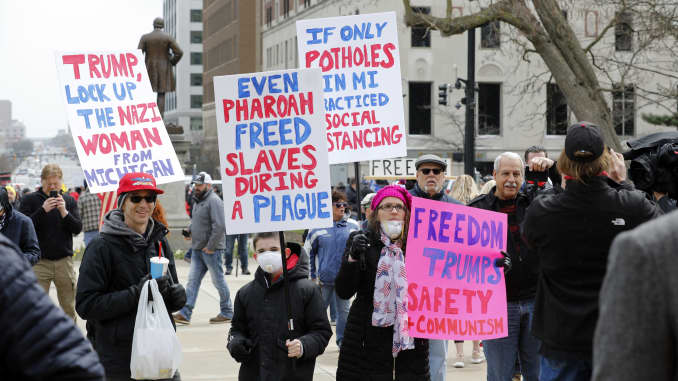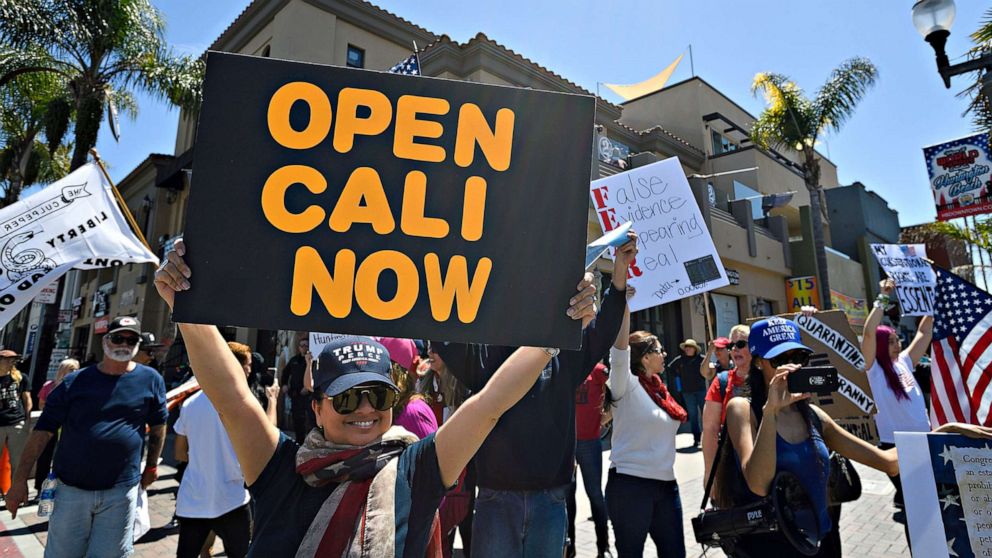In Massachusetts (which my observations take place) on March 23rd, Gov. Charlie Baker's administration put out an order regarding gatherings and defined "essential services." You can read it here, but to give you an idea, the table of contents includes:
Health Care/Public Health/Human Services
Law Enforcement, Public Safety, First Responders
Food and Agriculture
Energy
Water and Wastewater
Transportation and Logistics
Public Works & Infrastructure Support Services
Communications and Information Technology
Other Community-, Education-, or Government-Based Operations and Essential Functions
Critical Manufacturing
A fairly extensive list already--and the details therein these contents only makes them broader.
Was it designed to be broad? Of course. However, I know first-hand that some people did not realize they were considered "essential:" I worked for a billing and financing company that processed purchase orders and vendor invoices for sales associates. The associates were not selling T-shirts, coozies and tote bags lately, however--they were selling hand sanitizer, face masks, head coverings, gloves.. Anything that could contribute to public health safety equipment demand. Suddenly, I was "essential."
[I say "was" because I got terminated earlier this month.. and by "terminated" I mean laid off, without much hope of return, due to COVID-19.]
Getting back to the realization of what "essential" suddenly meant for us, allow me to now launch into the unsurprising (but still maddening) reality-laid-bare: Some of us thought we were above others all along. Put another way: Open-air classism. You have surely seen examples of this: Anti-quarantine protesters. None of the following images are mine, and can be easily Googled (sources cited in captions):
 |
| Source: CNBC.com |
/cdn.vox-cdn.com/uploads/chorus_image/image/66680736/1210379392.jpg.0.jpg) |
| Source: Vox.com |
 |
| Source: The Milwaukee Independent |
 |
| Source: ABC News |
 |
| Source: MSN.com |
"Freedom trumps safety and communism?"
"Isolation of the healthy is tyranny?"
..."I want a haircut?"..
These statements are ignorant at best; classist at worst.
Those of us who are fortunate to still have employment, but are not considered essential (or possibly a health risk, such is the case with someone I know), may be on paid leave right now. Those of us who are able to work from home will at least still have an income, but nowhere to go with non-essential businesses being closed (e.g., salons/beauty parlors, dine-in restaurants, theaters). Even if one is essential and physically heading into work, there is no guarantee that one is being paid more for their services.
Understandably, the topic of income inequality is a complex one, as classism rewards those with the unwritten code of conduct, inherent wealth and high-brow tastes--in short, cultural capital--the tangible and symbolic safety nets and status; upper-classmanship. Maybe in another entry I'll lapse into Weberian and Marxist theories about how upper-class status is achieved.
Bearing this in mind, it's worth reminding that everyone is capable of classism. For the sake of this entry, it is the degree of separation from reality that matters here.
Many of us choose to cope with the lack of haircut through social media memes and TikToks, sometimes making light out of a dark situation; other times making satire out of such protesters as the above. The protester, however, is not placing themselves in a satirical or otherwise jesting position. Even in cases where these protesters are working-poor, those who "want their haircut," or think "isolation of the healthy is tyranny," are displaying that they think quarantine is for someone beneath them.
That, somehow, a haircut is more important to their immediate needs than the safety of the hair-dresser. This could be applied to other non-essential desires: "I want to go to the movies;" "I want to meet up with friends at the bar;" "I want to go to the mall."
All of which is saying: "I want you to submit to me, such as the way it always was."
"Return us to normal."
Here are some questions to ask one's self:
1.) Is it "tyrannical" or "communist" to want all people--including those who appear to believe they are better than others--to not fall ill, or pass it onto their loved ones? Loved ones who may be immunocompromised or have pre-existing conditions?
2.) To strongly advise hand-washing not just for this pandemic, but for generally-good hygienic practices that generally keep us safe?
3.) To keep non-essential business closed and people home so as to slow the spread of a virus we are still learning about every day?
..True, there are small businesses (especially minority-/women-owned) that are hurting. This is a cause for alarm, especially there was already discrimination against these and interesectional people (the history of our racial wealth gap comes to mind, but one recent example can be read about here). Let us imagine that some of these protesters had these small businesses in mind..
..Yes, we are in part flying by the seats of our collective pants to staunch the bleeding that the lack of reliable, trustworthy information is causing. However, ill-advised demanding of businesses large and small to be reopened is not going to help anyone overcome a pandemic. The "normal" these protesters sorely want is not--clearly never was--a healthy "normal."
More questions:
4.) What do we define as a baseline "normal?"
5.) Does this "normal" include treating customer service, retail and other "essential" service workers with disrespect or misdirected anger when something doesn't go your way? Does it include said-workers continuing to be underpaid and with fewer benefits? Does it include unquestioned service under the notion of "the customer's always right?"
6.) Does it include leaving in place the systemic problems that keep women-owned, minority-, even LGBTQ- and intersectional-owned businesses placed on lower, less-prioritize rungs in our competitive, hyper-capitalistic and upper-class affirmative markets?